My mother named me Betsy after Betsy Ross, the woman who made the first American flag. It was a symbolic gesture—I'm the first American-born child in my family. Which means that yes, I'm one of the "anchor babies" the GOP keeps talking about, and I'm tired of being villainized.
I had what many immigrants would consider the ideal childhood: I grew up in Downey, California, which is 75 percent Latino and so affluent it is occasionally called the "Mexican Beverly Hills."
Since my elementary school classroom was as diverse as a United Colors of Benetton ad, I assumed other kids felt the same way I did about race and immigration. Until, that is, sixth grade, when California voters approved Proposition 187, which blocked undocumented immigrants from accessing any public services. Our English teacher decided to hold a debate in class to discuss the controversial initiative.
I was shocked when several of my classmates immediately rushed to explain that "these people" needed to go back to their country. Even some second and third generation Latino-American kids complained "they" brought in crime and had "all these babies" just to get money from the government. It was hard not to take these things personally, because up until a few years before that, my parents were "those" people.
Up until a few years before that, my parents *were* "those" people.
That's what makes me an "anchor baby"—it's a derogatory term used to describe children born to undocumented parents. It suggests that immigrant families bear children in the United States to prevent deportation or gain financial advantages bestowed upon U.S. citizens. We are bundles of joy that, in the eyes of the GOP, use our birthright status to manipulate the system to help our parents stay here.
For what it's worth, my parents have been permanent legal residents since the late '80s—my mother came here because her family lost everything in Guatemala's civil war, and my father because he was the oldest of seven children and sought employment that would allow him to support his family back home in rural Mexico. My being an "anchor baby" didn't accelerate or change their process—they applied and became legal permanent residents all on their own. But even if they were still undocumented, that wouldn't make *me* any less American. Children like me shouldn't have to constantly prove their validity or justify the decisions their parents made.
The "anchor baby" expression is hurtful for other reasons, too—it only furthers me from any kind of identity I try to find. I'm not really American, but I'm also not really Guatemalan or Mexican, either.
Stay In The Know
Marie Claire email subscribers get intel on fashion and beauty trends, hot-off-the-press celebrity news, and more. Sign up here.
My family members were always quick to remind me of that. When I was a child, they would note that my Spanish wasn't good and call me "gringa." As I got older they would complain that I was "acting white." My grandfather cautioned my father that I was too outspoken, which he saw as a distinctly American trait. I never wanted a quinceañera, the traditional celebration of a Latina's fifteenth birthday. When I started living on my own as an unmarried woman in my early 20s, my grandmother was horrified. It suggested that I was independent, even promiscuous. To this day, I constantly reject the notions of passive femininity that are traditional in Latino culture. All this behavior added up to me feeling like foreigner in my own family.
My life is quintessentially American. Cheeseburgers are my favorite food, I have credit-card debt, and I can sing all the lyrics to Journey's "Don't Stop Believing."
There is a popular Mexican movie from the late '80s called Ni de Aqui, Ni de Alla, which means "I am neither from here nor there." I saw that movie as a child and I remember thinking, Hey, that's me! I'm reminded of that feeling every time Donald Trump travels the country promising to make America great again by eliminating birthright citizenship.
My life is quintessentially American. Cheeseburgers are my favorite food, I have credit-card debt, and I can sing all the lyrics to Journey's "Don't Stop Believing." My parents took jobs in manual labor, working in the fields and cleaning homes, while I graduated college with honors. Since college, I have worked on a presidential campaign, lobbied members of congress, and written articles that were published nationwide. The possibility of such rapid change in one generation is one the many reasons why I am proud to be an American.
Of course, I'm not a rare case. There are approximately 20 million adults in the U.S. who were born to immigrant parents—you can call them all "anchor babies"...or just second-generation Americans. You can understand why I'd prefer the latter.
I am a keystone in my family, the link between a rich past and a hopeful future. It's a reality that, if Trump has his way, will not be possible in the future. No matter the ugly language used against me and other people like me, I love my country. Even if my country isn't always sure it loves me back.
-
 Olivia Rodrigo Finds the Perfect Spring Dresses at Reformation
Olivia Rodrigo Finds the Perfect Spring Dresses at ReformationShe's worn the brand twice in the past week.
By Julia Marzovilla Published
-
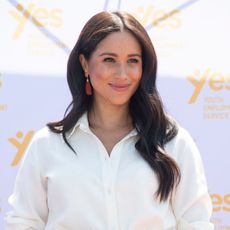 Curiously, Just as Meghan Markle Sends Samples of Her New Strawberry Jam Out, the Buckingham Palace Shop Starts Promoting Its Own Strawberry Jam on Social Media
Curiously, Just as Meghan Markle Sends Samples of Her New Strawberry Jam Out, the Buckingham Palace Shop Starts Promoting Its Own Strawberry Jam on Social MediaThe clip promoting the Buckingham Palace Shop’s product—we cannot make this up—is set to Mozart’s “Dissonance Quartet.”
By Rachel Burchfield Published
-
 Zendaya's Latest 'Challengers' Serve Is Nearly a Century Old
Zendaya's Latest 'Challengers' Serve Is Nearly a Century OldThe 1930s-era dress may have been pulled months ago.
By Halie LeSavage Published
-
 36 Ways Women Still Aren't Equal to Men
36 Ways Women Still Aren't Equal to MenIt's just one of the many ways women still aren't equal to men.
By Brooke Knappenberger Last updated
-
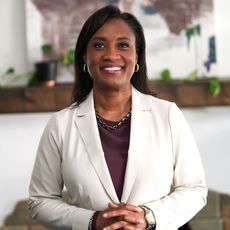 EMILY's List President Laphonza Butler Has Big Plans for the Organization
EMILY's List President Laphonza Butler Has Big Plans for the OrganizationUnder Butler's leadership, the largest resource for women in politics aims to expand Black political power and become more accessible for candidates across the nation.
By Rachel Epstein Published
-
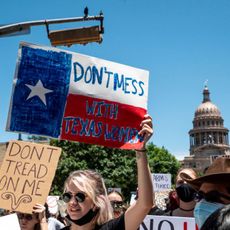 Want to Fight for Abortion Rights in Texas? Raise Your Voice to State Legislators
Want to Fight for Abortion Rights in Texas? Raise Your Voice to State LegislatorsEmily Cain, executive director of EMILY's List and and former Minority Leader in Maine, says that to stop the assault on reproductive rights, we need to start demanding more from our state legislatures.
By Emily Cain Published
-
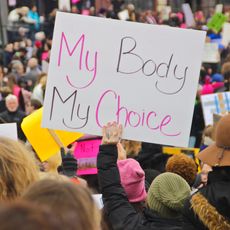 Your Abortion Questions, Answered
Your Abortion Questions, AnsweredHere, MC debunks common abortion myths you may be increasingly hearing since Texas' near-total abortion ban went into effect.
By Rachel Epstein Published
-
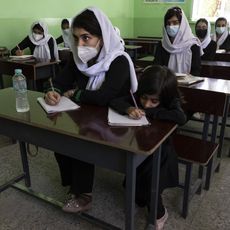 The Future of Afghan Women and Girls Depends on What We Do Next
The Future of Afghan Women and Girls Depends on What We Do NextBetween the U.S. occupation and the Taliban, supporting resettlement for Afghan women and vulnerable individuals is long overdue.
By Rona Akbari Published
-
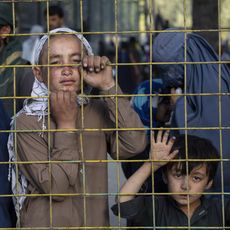 How to Help Afghanistan Refugees and Those Who Need Aid
How to Help Afghanistan Refugees and Those Who Need AidWith the situation rapidly evolving, organizations are desperate for help.
By Katherine J. Igoe Published
-
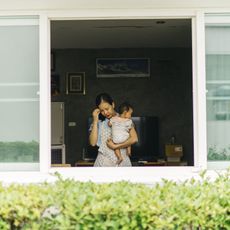 It’s Time to Give Domestic Workers the Protections They Deserve
It’s Time to Give Domestic Workers the Protections They DeserveThe National Domestic Workers Bill of Rights, reintroduced today, would establish a new set of standards for the people who work in our homes and take a vital step towards racial and gender equity.
By Ai-jen Poo Published
-
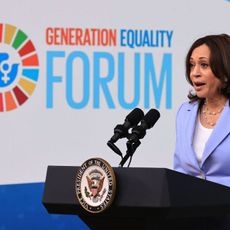 The Biden Administration Announced It Will Remove the Hyde Amendment
The Biden Administration Announced It Will Remove the Hyde AmendmentThe pledge was just one of many gender equity commitments made by the administration, including the creation of the first U.S. National Action Plan on Gender-Based Violence.
By Megan DiTrolio Published